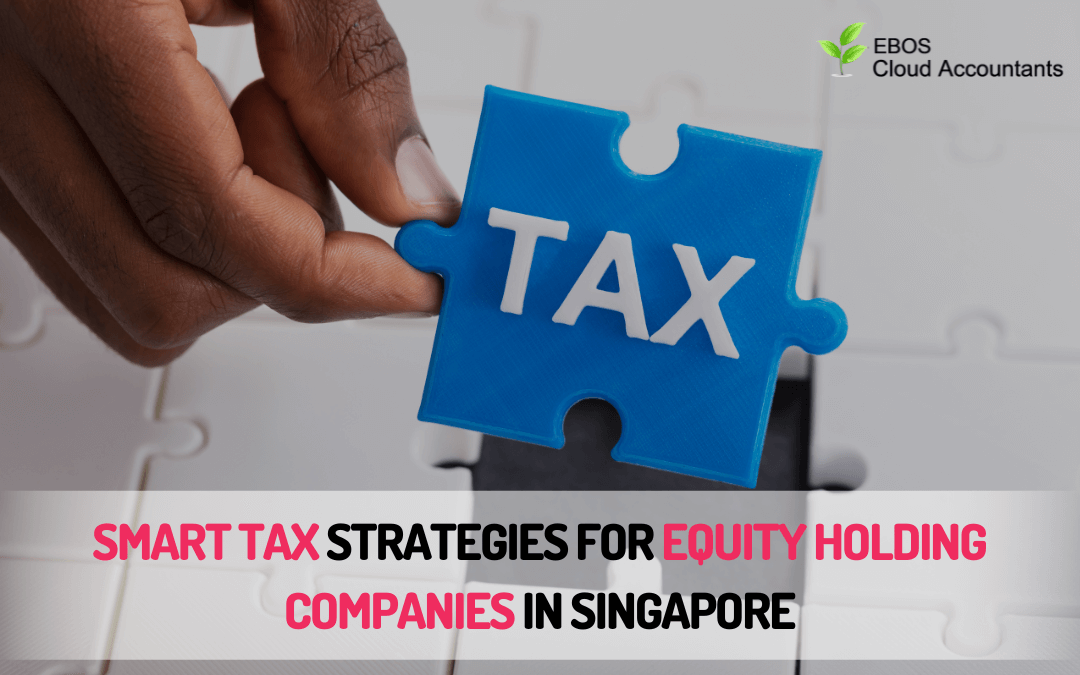Singapore is a global hub for businesses, especially for equity investment holding companies. These entities primarily exist to hold shares in other companies and generate income through dividends, capital gains, or interest. While the structure is straightforward, understanding the tax implications is crucial for maximizing returns and ensuring compliance with Singapore’s tax laws.
Here’s a breakdown of the key tax considerations for equity investment holding companies in Singapore:
1. Corporate Taxation in Singapore
Singapore has one of the most competitive corporate tax regimes globally, with a flat rate of 17%. However, the effective tax rate for equity holding companies can vary based on the nature of their income.
- Passive Income Taxation: Dividends and capital gains are generally not taxable in Singapore if they are of a capital nature. However, income deemed as revenue (e.g., active trading gains) may be subject to taxation.
- Exemptions and Incentives: Singapore offers tax exemptions for specific income types, such as foreign-sourced dividends and gains that meet qualifying conditions under the Income Tax Act.
2. Management and Control
The tax residency of a company in Singapore is determined by where its management and control are exercised. Equity investment holding companies must demonstrate that decisions are made in Singapore to qualify as a Singapore tax resident, allowing them to benefit from:
- Double Tax Treaties (DTAs): Access to Singapore’s extensive network of DTAs, which reduce withholding tax rates on cross-border dividends, interest, and royalties.
- Foreign-Sourced Income Exemption (FSIE): Tax exemption for foreign-sourced income that meets certain conditions, such as being remitted to Singapore and subject to tax in the foreign jurisdiction.
3. Substance Requirements
To benefit from tax treaties and exemptions, equity investment holding companies must demonstrate substance. This includes:
- Having a physical office in Singapore.
- Employing qualified staff for operational needs.
- Maintaining proper financial records and documentation.
Substance is increasingly scrutinized to prevent misuse of tax treaties and ensure that companies contribute meaningfully to Singapore’s economy.
4. Withholding Taxes
While Singapore does not impose withholding tax on dividends, interest, and royalty payments made to non-residents may attract withholding taxes. The applicable rates can be reduced through DTAs, making Singapore an attractive jurisdiction for international investors.
5. Goods and Services Tax (GST)
GST typically does not apply to holding companies since their primary income (dividends and capital gains) is not subject to GST. However, if the company provides management services or charges fees, it may need to register for GST if the annual turnover exceeds the threshold of SGD 1 million.
6. Transfer Pricing and Related-Party Transactions
Equity holding companies often engage in transactions with related parties, such as intercompany loans or management fees. These transactions must adhere to Singapore’s transfer pricing guidelines, ensuring that they reflect arm’s-length principles to avoid tax disputes.
7. Compliance and Reporting Obligations
Equity holding companies in Singapore must file annual tax returns, even if their income is not taxable. Additionally, companies may need to submit transfer pricing documentation and other compliance reports.
8. Planning for Exit Strategies
Tax planning doesn’t end with operations. When exiting an investment, understanding capital gains tax implications is essential. Singapore’s tax-friendly regime typically exempts capital gains from taxation, making it an attractive jurisdiction for investors.
Conclusion
Setting up and managing an equity investment holding company in Singapore offers significant tax advantages, but it also requires careful planning to align with local regulations and maximize benefits. From leveraging tax treaties to ensuring compliance with substance requirements, understanding the tax landscape is critical for long-term success. By working with tax advisors familiar with Singapore’s laws, companies can navigate these complexities and position themselves for sustainable growth.
Check out our website at https://ebos-sg.com/ to explore more articles and discover how our Cloud Accountant Services can support you on your business.







